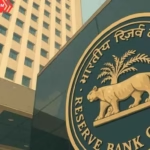India’s food and beverages (F&B) sector is witnessing an unprecedented surge in investor interest, driven by rising consumer spending, health-conscious consumption trends, and the growing presence of organised retail and quick-commerce platforms. Private equity firms, venture capital funds, and strategic multinational investors are pouring funds into Indian F&B brands, eyeing both short-term returns and long-term dominance in one of the world’s fastest-growing consumption markets.
Surge in funding activity and acquisitions
Industry data for FY2024-25 indicates:
- Over $2.3 billion invested in India’s food and beverages sector from April 2024 to June 2025.
- Deals spread across packaged foods, beverages, cloud kitchens, QSR chains, dairy, health foods, and alternative proteins.
- PE funds showing high interest in regional snack brands and premium beverage startups with scalable distribution.
Key F&B investment deals (Jan-June 2025)
| Investor/Fund | Investee Company | Segment | Deal Size ($ million) |
|---|---|---|---|
| Temasek & Multiples PE | Licious | Meat & seafood delivery | 320 |
| Coca-Cola Ventures | Paper Boat (Hector Beverages) | Premium ethnic drinks | 95 |
| Tata Consumer Products | True Elements | Healthy breakfast foods | 48 |
| Verlinvest & DSG CP | Epigamia (Drums Food) | Greek yoghurt, dairy | 42 |
| Norwest Venture Partners | Veeba Foods | Condiments & sauces | 60 |
| General Atlantic | Wow! Momo | QSR chain | 88 |
| Sequoia Capital | Sleepy Owl Coffee | RTD cold brew coffee | 35 |
| Rebel Foods | Acquisition of local biryani brand | Cloud kitchen expansion | 25 |
Factors fuelling the investor appetite
- Expanding consumption class: India is expected to add over 140 million middle-income households by 2030, expanding the market for branded F&B products.
- Health and premiumisation trends: Consumers are shifting towards organic snacks, high-protein alternatives, plant-based beverages, and functional drinks, offering scalable niches.
- Q-commerce boom: Platforms like Zepto, Blinkit, Swiggy Instamart, and BigBasket Now have accelerated the distribution of newer F&B brands.
- Regulatory streamlining: FSSAI’s clearer guidelines on labelling, ingredients, and safety certifications are making the sector investor-friendly.
- Attractive exit potential: Multinationals like Nestlé, Coca-Cola, PepsiCo, Mondelez, Tata Consumer Products, and ITC have actively acquired high-growth brands for portfolio diversification.
Growth forecasts
According to EY India estimates:
| Year | F&B sector valuation ($ billion) | Annual growth rate (%) |
|---|---|---|
| 2023-24 | 53 | – |
| 2024-25 | 61 | 15 |
| 2025-26 (proj.) | 72 | 18 |
| 2030 (proj.) | 130 | 14 (CAGR) |
Strategic investor preferences
Investors are focusing on:
- Strong brand recall with regional authenticity.
- Gross margins above 35-40% with scalable manufacturing capabilities.
- Modern trade and D2C distribution readiness to optimise go-to-market speed.
- ESG compliance and clean labelling, critical for millennial and Gen Z consumption patterns.
Challenges to watch
Despite its potential, India’s F&B sector presents challenges:
- Fragmented supply chains and high logistics costs.
- Fluctuating agricultural commodity prices affecting raw material procurement.
- Complex multi-state GST compliance for packaged food and beverage distribution.
- Rising competition from international brands entering niche health segments.
Expert insights
Food and beverages sector analyst Priya Raghavan said,
“Investors are betting on India’s F&B not just for urban growth but also Tier II and III market penetration where brand loyalty is high once acquired. The next phase of growth will depend on operational scalability, regulatory adaptability, and innovative product pipelines.”
M&A momentum expected
Industry insiders suggest at least 5-6 major M&A transactions in FY2025-26 as multinational companies seek to acquire Indian brands with established regional distribution, strong founder teams, and differentiated IP such as indigenous health ingredients, millet-based products, or Ayurvedic beverages.
The road ahead
Reliance Retail, Tata Consumer, ITC, Coca-Cola, and Nestlé are scouting multiple Indian F&B startups to bolster their premium and health-focused portfolios. Meanwhile, private equity firms such as General Atlantic, Everstone Capital, Norwest Venture Partners, and ChrysCapital are expected to raise dedicated consumption funds targeting Indian food brands in 2025-27.
Conclusion
India’s food and beverages sector has emerged as a lucrative destination for global and domestic investors seeking to ride the country’s consumption boom. With rising disposable incomes, digital distribution, and health-conscious consumer trends, the sector is poised for sustained investment inflows and strategic consolidation over the next five years.
Disclaimer: This news article is for general informational purposes only based on available market data, company statements, and analyst commentary. It does not constitute financial, business, or investment advice. Readers are advised to consult certified investment professionals before making any financial decisions related to market opportunities or F&B investments.












A cozy Kolasin booking for mountain lovers. Ski slopes, trekking trails, and local cuisine are nearby. Rooms are equipped with amenities, Wi-Fi, parking, and friendly staff are available to help you plan your vacation.